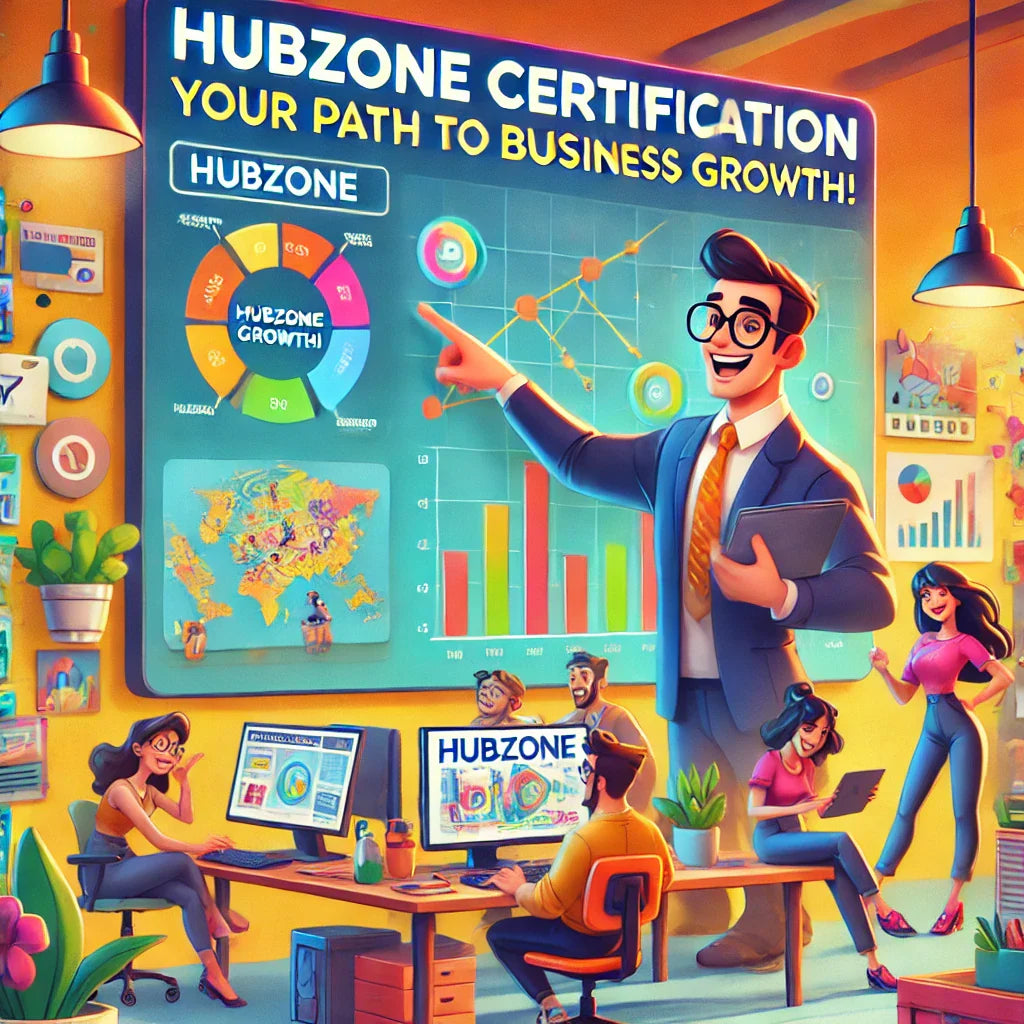
What is HUBZone Certification, and How Can It Boost Your Business?
Share
What is HUBZone Certification, and How Can It Boost Your Business?
If you’re a small business owner, you’ve probably heard about the HUBZone (Historically Underutilized Business Zone) program. But do you know how it can help your business grow and attract new opportunities? HUBZone certification isn’t just another checkbox—it’s a game-changing tool that opens doors to exclusive government contracts and helps drive economic growth in underserved areas.
Whether you’re already certified or thinking about applying, this guide breaks down everything you need to know about HUBZone eligibility, benefits, and how to make the most of it.
What is HUBZone Certification?
The HUBZone program, managed by the Small Business Administration (SBA), helps small businesses in economically underdeveloped areas win federal contracts. To qualify, your business must meet specific criteria and show that it contributes to local job creation and community development.
HUBZone Eligibility Criteria
Getting certified starts with meeting these core requirements:
-
Principal Office Location:
Your business’s principal office must be located in a HUBZone. This is where most of your employees work, excluding remote or client-site workers. Use the SBA HUBZone Map Tool to confirm if your location qualifies. -
Employee Residency:
At least 35% of your employees must live in a HUBZone. Employees must have resided in the area for at least 180 days or consider it their permanent home. -
Small Business Status:
Your business must qualify as a small business under SBA size standards, which vary by industry based on revenue or employee count. Use the SBA’s Size Standards Tool to check your status. -
Ownership and Control:
The business must be at least 51% owned and controlled by:- U.S. citizens, or
- Certain entities like Community Development Corporations, Indian Tribes, or Alaska Native Corporations.
-
SAM.gov Registration:
You must have an active registration in SAM.gov with accurate and up-to-date information. -
Ongoing Compliance:
To maintain certification, your business must continuously meet these criteria, especially during contract bidding and performance.
Why HUBZone Certification Matters
HUBZone-certified businesses get access to incredible benefits that can transform your bottom line, including:
- Exclusive Federal Contracts: Many government contracts are set aside specifically for HUBZone-certified businesses.
- Price Evaluation Preference: You can bid slightly higher than non-certified competitors (up to 10%) and still win contracts.
- Priority Partner for Large Companies: Prime contractors often seek HUBZone-certified businesses to meet their subcontracting goals.
How to Position Your Business for Success
Getting certified is just the first step. To fully benefit from your HUBZone status, here’s how to position your business:
-
Stay Compliant Year-Round:
Keep your principal office in a HUBZone and monitor your employee residency to ensure at least 35% live in HUBZone areas. -
Market Your Certification:
Highlight your HUBZone status in proposals, marketing materials, and on your website. It’s a powerful differentiator that sets you apart from competitors. -
Target Government Agencies:
Research federal spending trends and focus on contracts in your industry. Agencies like the Department of Defense, Homeland Security, and SBA are great starting points. -
Leverage Strategic Partnerships:
Team up with larger contractors or form joint ventures to bid on bigger projects. Just make sure you’re performing at least 40% of the work if you’re in a partnership. -
Be Contract-Ready:
Register on SAM.gov, refine your proposals, and ensure your business is ready to deliver on contracts.
Industries That Thrive with HUBZone Certification
HUBZone certification benefits a wide range of industries. If your business falls into one of these categories, the program can be especially lucrative:
- Construction and Infrastructure: General contractors, electrical services, HVAC installations.
- Information Technology: Cybersecurity, software development, cloud computing.
- Logistics and Transportation: Freight shipping, warehousing, fleet management.
- Manufacturing: Aerospace, medical supplies, construction materials.
- Professional Services: Environmental consulting, accounting, engineering.
The Bottom Line
HUBZone certification is more than a credential—it’s a tool for growth. By staying compliant, marketing your status, and targeting the right opportunities, your business can thrive while contributing to the economic development of underserved communities.
Ready to take the next step? Whether you’re applying for certification or figuring out how to leverage it, we’re here to help. Let’s turn your HUBZone certification into a competitive advantage! 🚀



